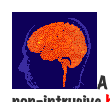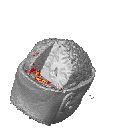

































From the IB
Introduction
The focus of this perspective is the interaction between the physiological and psychological factors that contribute to behaviour. Changes in behaviour can arise from an interaction of dispositional and environmental factors. Research has frequently, but not exclusively, used the experimental method. Key issues that are relevant to the biological perspective include criticisms that it often involves a reductionist approach and that behaviour exhibited by non-human animals is not always relevant to humans. In this unit students will evaluate the relevance of this perspective to modern psychology.
The focus of this perspective is the interaction between the physiological and psychological factors that contribute to behaviour. Changes in behaviour can arise from an interaction of dispositional and environmental factors. Research has frequently, but not exclusively, used the experimental method. Key issues that are relevant to the biological perspective include criticisms that it often involves a reductionist approach and that behaviour exhibited by non-human animals is not always relevant to humans. In this unit students will evaluate the relevance of this perspective to modern psychology.
Objectives of the Unit:
• Describe and evaluate the cultural context and development, the conceptual framework, the methodology, and the application of the biomedical model.
• Describe and evaluate theories and empirical studies within this perspective.
• Explain how cultural, ethical, gender, and methodological considerations affect the interpretation of behaviour from a biological perspective.
• Compare theories, empirical studies and the conceptual framework of this model with the other perspectives.
• Identify and explain the strengths and limitations of biological explanations of behaviour.
• Explain the extent to which free will and determinism are integral in this perspective.
• Explain and evaluate claims that correlates exist between physiological and psychological behaviour.
• Discuss controversies surrounding a reductionist approach, as adopted by many biological psychologists
• Describe and evaluate the cultural context and development, the conceptual framework, the methodology, and the application of the biomedical model.
• Describe and evaluate theories and empirical studies within this perspective.
• Explain how cultural, ethical, gender, and methodological considerations affect the interpretation of behaviour from a biological perspective.
• Compare theories, empirical studies and the conceptual framework of this model with the other perspectives.
• Identify and explain the strengths and limitations of biological explanations of behaviour.
• Explain the extent to which free will and determinism are integral in this perspective.
• Explain and evaluate claims that correlates exist between physiological and psychological behaviour.
• Discuss controversies surrounding a reductionist approach, as adopted by many biological psychologists



